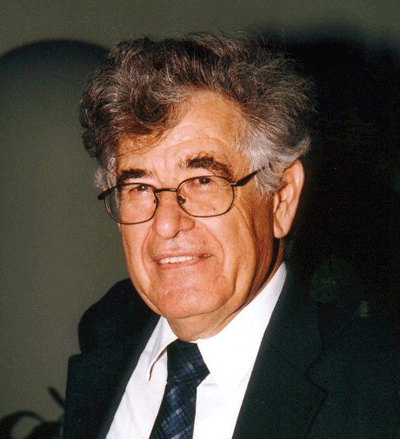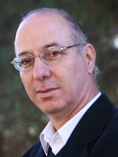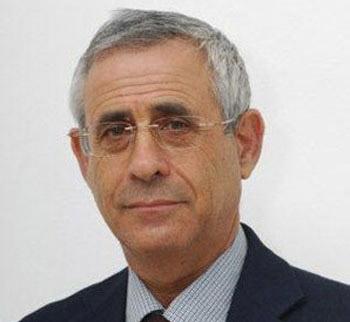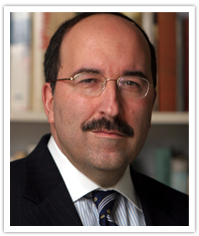http://www.arlenefromisrael.info/current-postings/2012/3/18/
march-18-2012-islam-and-jerusalem.html
On March 14, I attended a conference that considered the question, “Jerusalem: How Important Is It to the Muslims?” Held at the Menachem Begin Heritage Center, it was jointly sponsored by the Center and the Middle East Forum, of Philadelphia.
Speakers, in order of their presentations, were:
Dr. Daniel Pipes, founder and director of the Middle East Forum. Historian and commentator, he is the author of several books and position papers. His focus is American foreign policy, the Middle East and Islam.

Credit: Opinion-Forum
Dr. Moshe Sharon, professor of early Islamic history at Hebrew University. A specialist in Arabic epigraphy, he has recorded all the Arabic inscriptions in the Holy land, and is the author of several books..

Credit: FrontpageJerusalem
Dr. Mordecai Nisan, a scholar in Middle Eastern studies at Hebrew University and a contributing expert to the Ariel Center for Policy Research. He is the author of several books.

Credit: jweekly
Dr. Yitzhak Reiter, Ashkelon Academic College. His expertise encompasses conflict resolution at sacred sites and holy places, Islamic law and religious institutions. He is the author of several books, most recently, The New Islamic Ethos of Jerusalem — Between Reality and Imagination.

Credit: jiis
Dr. Mordecai (Moti) Kedar is a lecturer in Arabic at Bar Ilan University; his areas of expertise include Islam, Islamic movements and Arab societies. He had 20 years of experience with IDF Intelligence.

Credit: cjnnews
Itamar Marcus, founder and director of Palestinian Media Watch.

Credit: FrontpageJerusalem
Dr. Dore Gold, president, the Jerusalem Center for Public Affairs. He has served as Israeli ambassador to the UN, and advisor to prime ministers. He is the author of several books, including, The Fight for Jerusalem: Radical Islam, the West, and the Future of the Holy City.

credit: dore-gold
~~~~~~~~~~
I offer the above information so that you might have a sense of the conference, but also because it provides a list of excellent references for issues related to Islam and Jerusalem. Of particular note:
Daniel Pipe’s Middle East Quarterly (http://www.meforum.org/meq/ ) provides a cogent and serious level of analysis by various commentators and academics. Recommended also are articles by Moshe Sharon and articles and books by Dore Gold — as well as briefings and analyses written by others for the Jerusalem Center for Public Affairs (http://www.jcpa.org/ ). The Palestinian Media Watch (http://www.palwatch.org/ ) is an excellent source for what the Arabs are saying. Moti Kedar, who travels to the US frequently, is a dynamic and highly-informed speaker.
~~~~~~~~~~
Here, I will, for the most part, consolidate and summarize what was said at the conference.
What must be emphasized at the outset is that Jerusalem is not mentioned in the Koran and is not directly associated with Muhammad (with more on this below).
A major thrust of several of the talks was that the position of Islam with regard to Jerusalem has shifted historically depending on circumstances. It is not a constant. Daniel Pipes says that it is related to the political climate of a particular time. For example, during the Crusades, Muslim interest increased because of Christian control of the city. Just as it became true again with Jewish activity in Jerusalem — which is the situation in which we find ourselves today.
In 682, there were political tensions in Mecca, fighting between Medina and Mecca. So, for political reasons an alternative for pilgrimage purposes was provided via Jerusalem. This is a typical example of transient importance attached to Jerusalem because of political circumstances and not because of the inherent value that was seen to adhere to Jerusalem.
There were many points at which Jerusalem was not central to Islam. Dore Gold provided an example from the 14th century, with Islamic historian Ibn Tair, who didn’t see Jerusalem or Hevron as sacred.
Similarly, Moti Kedar shared a text written in 1925 by the Supreme Muslim Council. In referring to the Temple Mount, this book says, “Its identity with the site of Solomon’s Temple is beyond dispute.” Today Muslims vociferously deny this reality.
We see downplaying of the importance of Jerusalem with the Jordanians: When they controlled eastern Jerusalem, they wanted to build up Amman as more important — actually moved the Wakf (Islamic trust) offices there. I will add that it was only after almost 19 years of Jordanian control of eastern Jerusalem that King Hussein decided to build a palace there — the king of Jordan didn’t spend time in Jerusalem even though he might have. But shortly after came the Six Day War. That “palace” sits only partially built until today.
~~~~~~~~~~
What makes current claims of the importance of Jerusalem to Islam so difficult to combat is that, as Moshe Sharon has put it, “Islam has Islamisized history and geography.” Islam, they say, existed since the beginning of the world — Muhammad was created before Adam and then was dissolved. The dust of Muhammad was used to create Adam, who was a Moslem, as was Avraham, Isaac, Moses, etc. Truth is only with Islam. There is a text, “Islamic holy places in Jerusalem before Islam.”
~~~~~~~~~~
There is a very famous Koranic verse — Sura 17.1 — that reads “Blessed be he who transported his servant from the near holy mosque to the farthest mosque.” There is an historical explanation for what this referred to. Jerusalem, however, was then read into this retroactively in about 715, in the time of the Umayyads, who built al-Aksa. Today the verse is cited as proof that Allah transported Muhammad during his “night journey” to the farthest mosque, which is al-Aksa mosque in Jerusalem. But the al-Aksa mosque was built after the verse had been written.
~~~~~~~~~~
Yitzhak Reiter says that during the last 50 years, a new Islamic ethos of Jerusalem has been developed to serve the political reality:
— a new history has been written
— Jewish attachment to Jerusalem is denied
— the status of al-Quds (Jerusalem) has been elevated
— all of Jerusalem and all of Palestine is claimed as wakf (holy Islamic trust)
— warnings are sounded that the al-Aksa mosque is in danger (threatened by the Jews)
A Muslim Arab history has been created that predates the arrival of the Hebrews in Canaan.
Says one Muslim writer: “The Canaanites and Jebusites and Amalekites came to Palestine from the Arabian Peninsula.” Of course, the intent here is to show that those who inhabited Palestine from an early time were Arabs. But I rather liked this because it inadvertently ties Amalek to the Arabs.
There is denial of the fact of a Temple on the Mount. (It was in Yemen, or one of a dozen different places named without consistency.) Jewish presence is recent and there is not even any Jewish attachment to the Kotel, the Western Wall.
~~~~~~~~~~
Mordecai Kedar, taking an approach that is significantly different from the other speakers, says that the underlying motivation for the Muslim approach to Jerusalem is essentially theological and not political. I found this to be exceedingly elucidating:
From its inception, Islam was viewed as an illegitimate religion; Muhammad was accused of simply recycling the earlier religions (saying that Moses, Jesus, etc. are all Muslim prophets). There was a struggle to prove that it was legitimate and independent — this became an obsession. The approach that was adopted was to say that Islam was meant to replace the earlier religions. (It is for this reason that mosques are built on top of churches — or in the instance of the Temple Mount, the Dome of the Rock on top of the ruins of the Temple.) Islam is not intended to live side-by-side with other religions.
Thus, 1948, when a Jewish nation was re-established in the traditional homeland of the Jews, it was a disaster for the Muslims. This, I believe, makes the concept of the Nakba (the view that the founding of the State of Israel is a “catastrophe”) clearer than a purely political interpretation does. Islam was supposed to replace Judaism. How can there be a resurgence of Judaism? It undercuts the very raison d’etre of Islam. And then in 1967, the Jews took the Temple Mount as well.
Says Kedar, when Israel builds, proving that Jews are here to stay, it is unbearable for Muslims.
Elucidating, indeed, but holds out no promise for comprise or peace.
~~~~~~~~~~
As part of his presentation, Kedar showed a video of his interview on Jerusalem done on al-Jazeera. It’s delicious, and I provide the link to it here for your viewing pleasure:
http://www.youtube.com/watch?v=VHpMhAzj-Tk
~~~~~~~~~~
Itamar Marcus provided ample evidence of Islamic attitudes regarding Jerusalem via Palestinian Media Watch. For example:
A video from PA TV that “shows a woman who apparently represents ‘ancient Palestinians’ (or possibly Muslims) going through the history of the land – replacing the Jewish people’s actual history”:
http://www.palwatch.org/main.aspx?fi=495&doc_id=6556
A video from PA TV that “mimics Jewish tradition: Imitates Psalms 137:5 ‘If I forget thee, oh Jerusalem'”:
http://www.palwatch.org/main.aspx?fi=932&doc_id=6571
A clip from PA TV in which a lecturer Dr. Jamal Amar, says:
“There is a view that where it [the Dome of the Rock] stands was the Holy of Holies of the fictitious Temple – and by the way, that is merely an illusion. There is no remnant of it. It’s a myth. A story of no value, like the Arabian Nights, and other legends… Only in Palestine… [after] 60 years of digging, and they’ve found nothing at all. Not a water jug, not a coin, not any earthen vessel, no bronze weapons, no piece of metal, absolutely nothing of this myth, because it’s a myth and a lie. This digging has not left a single meter [unturned], but it has achieved absolutely nothing.”
http://www.palwatch.org/main.aspx?fi=487 (scroll down a bit for the clip)
Surely, Dr. Amar knows better. But what of the people who hear his statement?
~~~~~~~~~~
Dore Gold’s final presentation emphasized the need for all of Jerusalem to stay in Jewish hands. With the radicalization of Islam, he says, we are seeing something that was not the case historically. Even when Jews were second class citizens in Muslim lands, they were able to have synagogues. But now, there is a tendency to see the Muslim destruction of holy sites of other religions. Of course it was the case in eastern Jerusalem during the Jordanian occupation — when synagogues were systematically destroyed. But also with the eager rush by Palestinian Arab Muslims to damage Joseph’s Tomb in Shechem. And the destruction by the Taliban of ancient Buddhist statues — a national treasure — in Afghanistan. And the disrespect of the Church of the Nativity in Bethlehem by Muslims. And what is happening to Coptic Churches in Egypt.
The Christian world, by and large, is promoting a “two state solution” that would put Christian sites into Muslim hands. But they had best ask themselves who is going to protect the Church of the Holy Sepulcher, which is in eastern Jerusalem, if it is under the control of Palestinian Arabs.
Only Israel is capable of protecting the holy sites of all religions.









